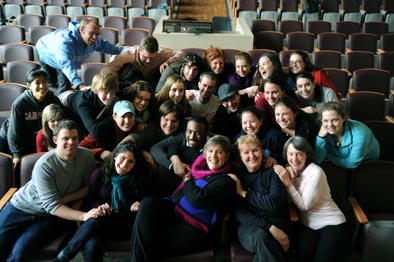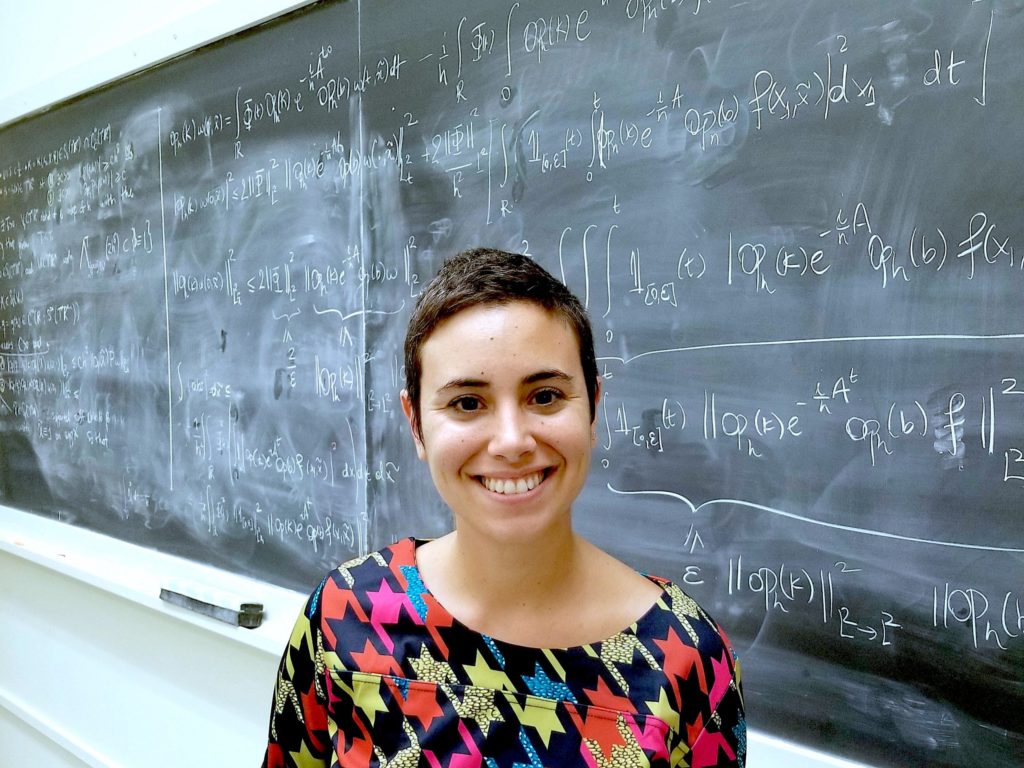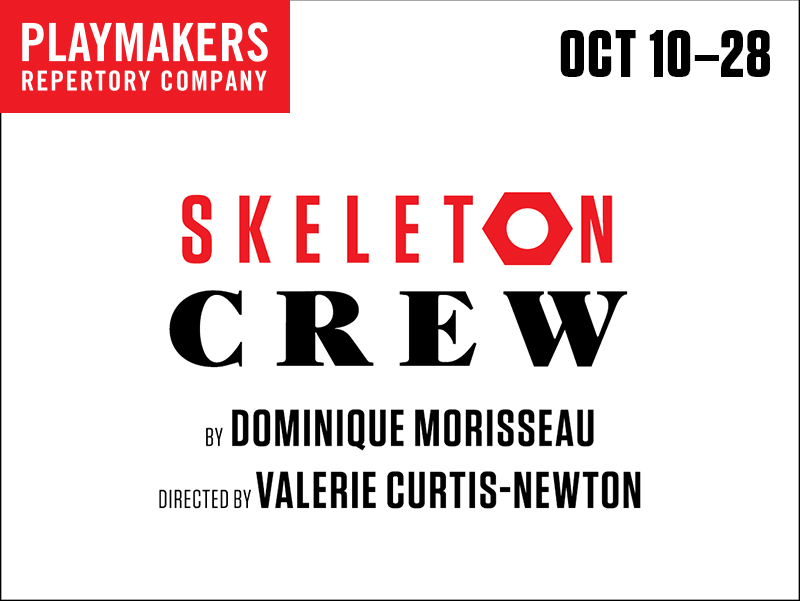
Jan Bardsley knew just what to do with surprise funding from the dean’s office.
A stipend for a graduate student to oversee logistics for a major Asian studies conference on campus? Yes.
Funds for faculty who elevate the department’s profile by editing prestigious academic journals? Yes.
Research awards for talented junior faculty writing their first books. Yes!
Thanks to a $1 million gift to the College of Arts and Sciences from an anonymous alumni couple, the dean, too, can say “yes” with support for department chairs — faculty leaders who often sacrifice their own careers to serve the University.
Dean Karen M. Gil made the first awards — academic leadership grants — this fall to 12 department chairs, including Bardsley of Asian studies. Awards ranged from $13,000 to $20,000. Gil will have $200,000 available each year for the next five years to provide chairs with funds they may use to support research, teaching and “say yes” initiatives for faculty in their departments. Chairs may also use the grants to support their own academic, professional or administrative activities, or as summer compensation.
“I am really grateful to the dean and the donors for this funding,” said Bardsley, who reserved a small amount for her own postponed research as a Japanese culture scholar.
“The ability to help junior faculty get ahead on their research was very helpful. Budgets are tight, but research has to continue and even $1,000 or $2,000 is extremely valuable, particularly because travel costs for our research in Asian studies is expensive. These awards provide great encouragement.”
Gil, a former department chair, said it’s her priority to support the College’s academic leadership.
“Being a chair is a large, time-consuming and demanding job that’s performed mostly without recognition and adequate compensation,” she said. “It’s like running a small business and having little to put into building the business.”
“The best way for me to recruit the most able faculty to serve as chairs is to provide greater and more effective incentives,” Gil added. “This wonderful gift not only provides funds for me to direct to our College leadership, but it also sends a message that we support our chairs. This gift will empower them to do their work and give them resources to make things happen.”
And chairs must make plenty of things happen.
They oversee searches that bring talented faculty to campus. They mentor junior faculty, and when faculty are courted by peer institutions, chairs work with the dean to make a counter-offer for a valued faculty member. The dean also asks chairs for recommendations on tenure decisions. Chairs set priorities that influence the quality of department curricula, oversee multi-million dollar budgets, and wield authority on course development, teaching assignments, merit raises and leaves. Without committed, creative, problem-solving chairs, faculty production and morale declines, and they leave for other institutions, compromising a quality educational experience for students.
Chairs also place their careers on hold to run the department.
“The resources made available by this gift will prove to potential faculty chairs that their scholarship will not suffer if they accept the position, but could, in fact, be strengthened,” said Lloyd Kramer, history chair for five years, and another recipient of the initial grants. “It enhances the attractiveness of being chair, and its benefits have a ripple effect throughout the department.”
Matt Redinbo, chemistry chair, said the generous grant — even more welcome with the campus’ economic pressures — has enabled him to send faculty to chemistry teaching conferences to deal with curriculum changes to pre-med requirements.
“I’ve also been able to focus on mechanisms to recruit under-represented minorities, both students and faculty, to the department.”
For Carolina to compete with the best schools in the country and for the best people, it must have funds to attract top faculty, said one of the donors.
“Department chairs make decisions with long-term repercussions about the direction of their departments and have great influence over the University’s future,” she said. “It is extremely important that we have the best faculty possible in these positions and that we equip them well.”
Editor’s note: This story by Del Helton appeared in the spring ’11 issue of Carolina Arts & Sciences magazine.




